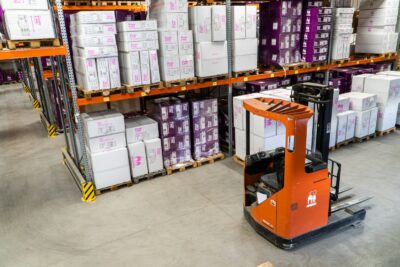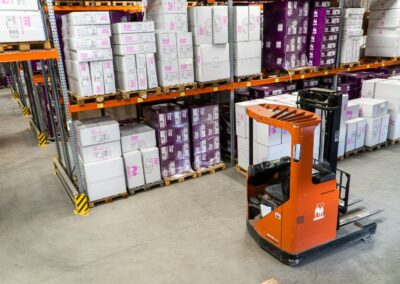From Intuition to Intelligence: A New Era for Stock Management in the Region
The retail revolution in the Middle East, fueled by a growing population, rising disposable incomes, and a burgeoning e-commerce sector, is experiencing a period of remarkable transformation. However, with this growth comes the challenge of optimizing inventory management. Traditional methods, often reliant on intuition and historical data, struggle to keep pace with dynamic consumer demands and the complexities of modern supply chains. Here’s where AI-Powered Inventory Management emerges as a game-changer. By leveraging the power of artificial intelligence, retail businesses across the Middle East, from established giants in Riyadh and Dubai to innovative startups, can unlock a new era of efficiency, streamline stock levels, and significantly reduce waste.
Traditionally, inventory management relied on manual calculations, static spreadsheets, and historical sales data, which may not always reflect real-time trends. This often led to overstocking, resulting in lost profits due to markdowns and product expiration, or stock outs that frustrated customers. AI-Powered Inventory Management introduces a new level of sophistication. Machine learning algorithms can analyze vast datasets of sales data, customer behavior patterns, social media trends, and even weather forecasts. This allows for highly accurate demand forecasting, enabling businesses to predict future product needs with remarkable precision. Additionally, AI can integrate with other technologies like blockchain to ensure supply chain transparency, optimize stock replenishment processes, and identify potential disruptions before they occur.
Beyond Efficiency: The Transformative Impact of AI on Retail Success
The implementation of AI-Powered Inventory Management offers a multitude of benefits that extend far beyond simply streamlining stock levels. Here’s how AI is transforming the retail landscape in the Middle East:
Reduced Waste and Environmental Sustainability:
By accurately predicting demand, businesses can minimize the risk of overstocking, leading to a significant reduction in waste. This not only improves profitability but also fosters a more sustainable business model, a growing concern for environmentally conscious consumers and a key differentiator in today’s competitive market. Furthermore, AI can identify slow-moving inventory, allowing for timely adjustments to pricing or promotional strategies, further minimizing waste and maximizing resource utilization.
Enhanced Customer Experience and Personalization:
Empty shelves and stock outs are major deterrents for customers, leading to frustration and lost sales. AI-Powered Inventory Management ensures that the right products are available at the right time in the right quantities, minimizing stock outs and fulfilling customer needs effectively. Additionally, AI can be used to personalize the shopping experience by recommending relevant products based on past purchases, browsing behavior, and even demographic data. This not only fosters customer satisfaction and loyalty but also increases the likelihood of repeat business and higher basket values.
Improved Operational Efficiency and Cost Savings:
AI streamlines inventory management processes by automating tasks like data entry, forecasting, and stock replenishment. This frees up valuable staff time and resources, allowing them to focus on more strategic tasks like customer service, product development, and marketing. Additionally, optimized procurement processes and reduced warehouse storage needs due to lower inventory levels can lead to significant cost savings for businesses. Furthermore, Generative AI can be used to create optimized product layouts within stores, improving customer flow and enhancing the overall shopping experience.
Data-Driven Decision Making and Improved Project Management:
AI-Powered Inventory Management provides businesses with real-time insights into inventory levels, sales trends, and customer behavior. This data empowers retailers to make informed decisions about everything from product assortment and pricing to store layout and marketing campaigns. Additionally, it allows for improved project management, particularly for new store openings or seasonal promotions. By accurately forecasting demand and optimizing inventory levels, businesses can ensure a smooth launch and minimize disruptions during peak sales periods.
#AI #InventoryManagement #BusinessSuccess #MiddleEast #SaudiArabia #UAE #Riyadh #Dubai #ProjectManagement #SupplyChainManagement #GenerativeAI























